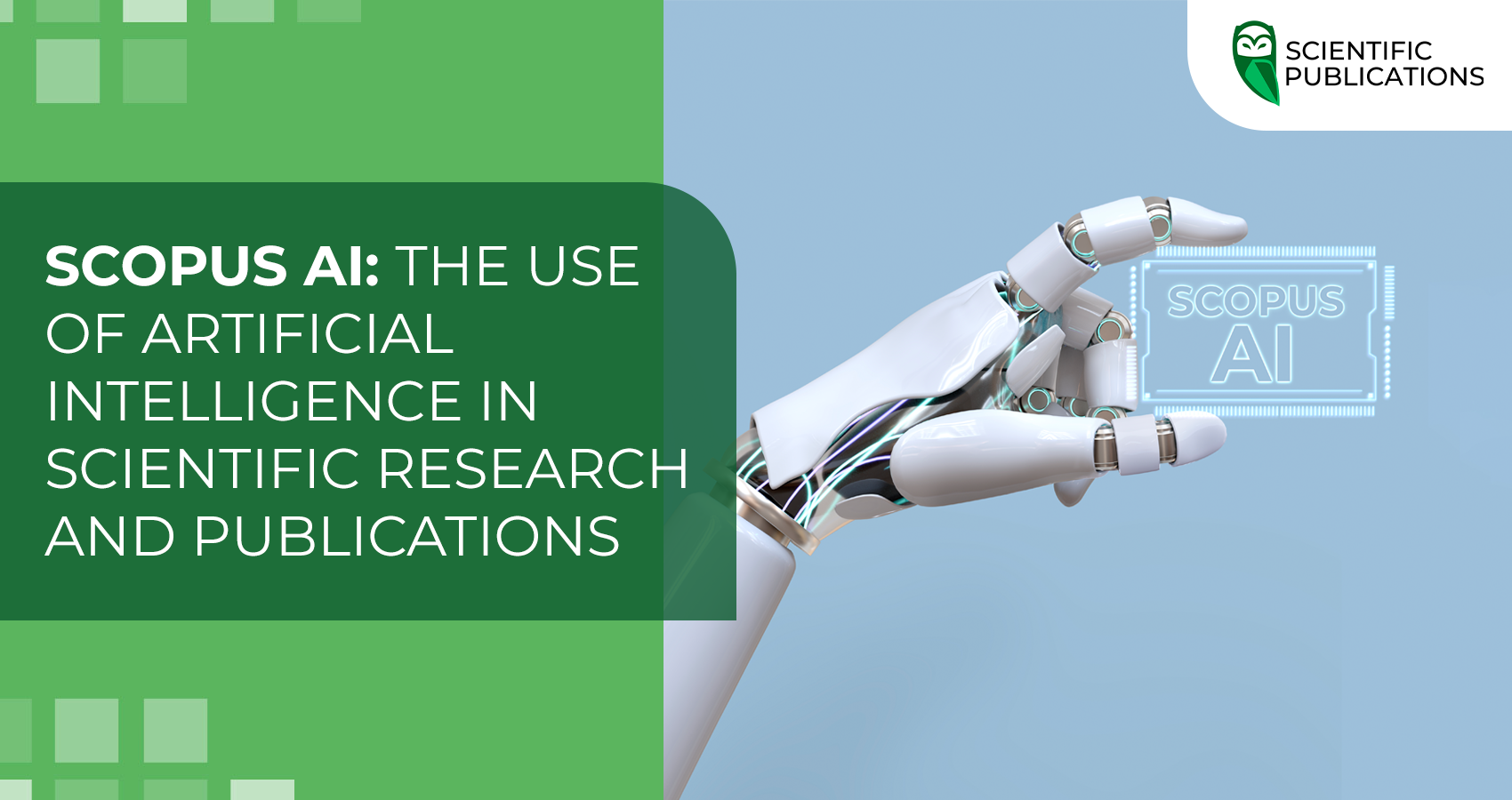In 2024, the international database Scopus launched its own artificial intelligence. What are its advantages and prospects for use by scientists?

It is hard to imagine the modern world without artificial intelligence, which has become a part of almost every aspect of our lives, including the scientific sphere. For scientists, the use of artificial intelligence in writing scientific articles has a number of advantages. In this article, we will analyse the artificial intelligence that has been implemented in the international platform Scopus.
What is Scopus AI?
Scopus AI is a new search tool based on generative artificial intelligence (GenAI) developed to significantly improve the capabilities of the Scopus search engine. The test version of Scopus AI was launched in 2023, and the finished product was released in 2024.
Development and uniqueness
Scopus AI is a unique product. The tool was developed in response to the need to learn about new topics more efficiently, which was identified by 60% of Scopus users. Thousands of researchers, librarians, and academic leaders from all over the world participated in the development and testing of the tool. Thanks to their feedback, RAG Fusion technology was developed, which significantly improves the quality of search and answer generation.
Scopus AI relies exclusively on metadata and materials in Scopus that have been published since 2003. This allows us to identify the most relevant content from over 7,000 publishers represented in the database. The database is updated almost in real time, providing users with constant access to the latest information.
Availability of Scopus AI in countries around the world
Scopus AI is currently available in the following countries:
- USA.
- United Kingdom.
- Canada.
- Australia.
- Germany.
- France.
- Netherlands.
- China.
- Japan.
- South Korea.
These countries were selected on the basis of the fact that they have the largest number of scientific institutions and research centres. Availability in other countries is possible upon request from educational institutions or research organisations that have an institutional subscription to Scopus.
Features of Scopus AI
Scopus AI offers a number of powerful tools for researchers, including:
- Optimisation of the search process. Researchers can get the necessary scientific materials in a matter of seconds systematically that meets their needs.
- Answer generation. AI generates research summaries, provides recommendations on the most influential papers and experts in a particular field.
- Verified materials. Scopus AI provides access only to verified scientific materials indexed in the database. Unlike other generative AIs, Scopus AI uses only metadata and materials included in the database since 2003. Answers generated by this artificial intelligence are always based on the most up-to-date information in the scientific field and relevant content published by more than 7000 publishers included in the database.
- Concept maps. Scopus AI creates interactive concept maps that help researchers get a general idea of a research topic and its relationship to other research areas.
- Search for co-authors. The tool analyses more than 19 million author profiles in Scopus to identify the best researchers in a particular field.
- A reliable tool for selecting topics for future research. The artificial intelligence on the Scopus platform is a reliable tool for selecting future research topics. It can process large volumes of scientific content included in the database in a few seconds and suggest relevant areas for new projects, as well as highlight areas of knowledge that are currently of interest to the scientific community.
Scopus AI principles
- Data confidentiality.
- Strict content verification.
- Transparency and reliability.
Using Scopus AI opens up many opportunities for authors. Scopus AI increases the productivity and efficiency of research activities by providing authors with convenient tools for searching and analysing scientific content. Thanks to the use of artificial intelligence in Scopus, researchers quickly get access to up-to-date information, thereby improving the quality of their research and contributing to the development of science.
Do you need to publish in Scopus? Contact the specialists of Scientific Publications. Our highly qualified team will accompany you to a successful publication in Scopus. If you have any questions or need advice, leave a request on the website, and our manager will contact you within a business day. Subscribe to our social media channels to keep up with the latest news in the world of science and scientometrics.





